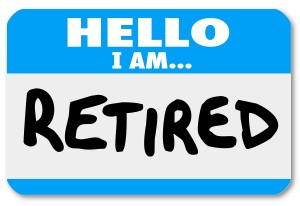When we think of our days spent in retirement, we usually daydream about sitting in a boat with a fishing rod, traveling overseas or going camping with our grandchildren. However, the reality of it all is that it may be spent looking after our health, according to a new poll that found future retirees’ biggest expense will be healthcare.
The Bank of Montreal (BMO) published a report entitled “Living to 100: The Four Keys to Longevity,” in which it discovered that nearly three-quarters (74 percent) of Canadians think healthcare and medical costs will be their largest expense in their winter years.
 In fact, most survey respondents expect to spend more than $5,000 in out-of-pocket medical expenses each year once they reach the age of 65. Here is the rundown: 30 percent cite between $1,000 and $5,000; 21 percent say they no idea; 20 percent expect to spend less than $1,000; 16 percent think they’ll spend between $5,000 and $10,000 annually; six percent said between $10,000 and $15,000; and three percent pegged their costs between $15,000 and $20,000 or more.
In fact, most survey respondents expect to spend more than $5,000 in out-of-pocket medical expenses each year once they reach the age of 65. Here is the rundown: 30 percent cite between $1,000 and $5,000; 21 percent say they no idea; 20 percent expect to spend less than $1,000; 16 percent think they’ll spend between $5,000 and $10,000 annually; six percent said between $10,000 and $15,000; and three percent pegged their costs between $15,000 and $20,000 or more.
“It’s clear there is a major demographic shift happening in our country,” said Chris Buttigieg, senior manager of wealth planning strategy at BMO Financial Group, in a statement. “As Canadians’ longevity continues to improve, they should account for the health and financial issues that come with the possibility of living a longer life.”
After medical costs, the majority (57 percent) of respondents noted food, clothing and other day-to-day essentials will be their second biggest expense. This is followed by housing (56 percent), long-term care (38 percent), travel (28 percent), entertainment and hobbies (19 percent), debt payments (15 percent) and supporting adult children and grandchildren (13 percent).
Despite the fact that future retirees do expect to face significant costs as they get older, one-quarter of study participants conceded to not having a financial plan for retirement, a troubling matter that is afflicting millions of Americans and Canadians.
The report averred that once we no longer maintain a steady stream of income, we start to rely on the funds we accumulated during our working years. Also, once we think about the fragility of the Canada Pension Plan (CPP) and rising healthcare costs, we seek out more resources and other long-term solutions to our financial insecurities.
Last month, we reported on a Scotiabank study found nearly half of Canadian baby boomers fear outliving their retirement savings. Those who are retired or on the cusp of doing so say they may not have the sufficient funds to live comfortably, travel and meet their healthcare needs. Since most Westerners are living longer, this is a concern among a growing number of people.
Another concern is that a report published by the United States Census Bureau found that baby boomers are overweight and are not financially equipped to look after their medical needs in retirement.
Perhaps these are ingredients for a potential disaster for coming generations.
The BMO online survey was conducted with 1,007 adults between Feb. 27 and Mar. 3. It does not contain a margin of error.



